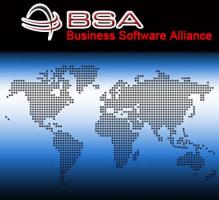Time to name and shame the anti-open source extremists


But there are still extremists out there who want to destroy open source. Some of their names may surprise you.
What they have done is retreat into a group where they seek not to be identified.
The International Intellectual Property Alliance dates from 1984, before open source began, and is thus the perfect front group for this activity.
It's a coalition of seven groups that together comprise the copyright industry:
- The Association of American Publishers (AAP)
- The Business Software Alliance (BSA)
- The Entertainment Software Association (ESA)
- The Independent Film & Television Alliance (IFTA)
- The Motion Picture Association of America (MPAA)
- The National Music Publishers’ Association (NMPA)
- The Recording Industry Association of America (RIAA)
Most of these groups are not involved in software, except as users. The exceptions are the BPA and ESA.
The IPAA's focus is on so-called Special 301 Reviews. It's an annual review of our trading partners' policies conducted by the U.S. Trade Representative. This can result in countries going on a Watch List making it harder to trade in these goods.
Most of the countries the IPAA wants on the lists are either havens for piracy or have laws that don't give as much protection to American movies, music and TV as the industry wants. Industry is apparently especially suspicious of Canada and Mexico.
But Edinburgh professor Andres Guadamuz has learned the group is now also going after open source, urging that countries go on the watch list if they merely encourage the idea.
This is not something that came from the music or movie industries. Both benefit enormously from open source, both in the creation of their products and in opening new markets.
This comes from the ESA and BSA. Let me focus on the BSA.
The BSA has long focused on piracy. Piracy is a problem. Piracy is bad.
But open source is a cure for piracy. It brings programmers from other countries into the software creation process. Its contracts let poor countries use software legally.
If the BSA's position has reversed, if it now wants to use the force of the U.S. government to drive open source under, then its members are also against open source. But the BSA's membership includes IBM, HP, Cisco, Adobe, and Dell -- some of the biggest boosters and biggest beneficiaries of open source on the planet.
It's time to ask these companies. Do you agree with the position of the trade group you belong to? Should you continue to support a trade group that is acting against your corporate interests?
Or are you playing a double game, supporting open source in public while trying to destroy it in private?